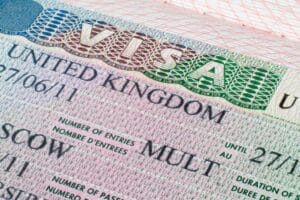Travel Advice - What You Need to Know

Southwest Abandons Free Changes Free Bags Open Seating
Southwest Abandons Free Changes Free Bags Open Seating What This Means for Southwest’s Loyal Travelers Photo by Sven Piper Southwest Airlines, renowned for its customer-friendly policies and unique operational model, is embarking on a series of significant changes set to reshape the travel experience for its passengers. That’s right! This year we will bear witness as Southwest abandons free changes, free bags, open seating: the perks and policies that many of us love most about this airline. These transformations, scheduled to roll out through 2025 and beyond, mark a departure from long-standing traditions that have defined the airline for decades. This article delves into these three pivotal changes: the end of open seating, the introduction of fees for flight changes, and the implementation of charges for checked baggage. No More Open Seating For over 50 years, Southwest Airlines has operated on an open seating policy, allowing passengers to choose their seats upon boarding. This first-come, first-served approach has been a distinctive feature of the airline, setting it apart from competitors. However, in July 2024, Southwest announced plans to transition to assigned seating, a move driven by extensive customer research indicating that 80% of current and 86% of potential customers prefer assigned seats. The shift to assigned seating is slated to begin later this year, with the airline starting to sell assigned seats in the second half of 2025 and implementing the new system in early 2026. This change aims to enhance the customer experience by providing clarity and reducing the anxiety associated with open seating. Moreover, Southwest plans to introduce premium seating options with extra legroom, catering to passengers seeking additional comfort during their flights. Photo by Lukas Souza No More Free Changes Historically, Southwest has been lauded for its flexible policies, notably allowing passengers to change their flights without incurring additional fees. This flexibility has been a significant draw for travelers seeking adaptable travel plans. However, as part of its new business strategy, Southwest is introducing a Basic Fare option for its lowest-priced tickets purchased on or after May 28, 2025. This fare category is expected to come with more restrictions, potentially including fees for flight changes and cancellations, aligning Southwest’s policies more closely with those of other major carriers. The introduction of a Basic Fare aims to attract more price-sensitive customers while allowing the airline to generate additional revenue through ancillary fees. This move reflects a broader industry trend where airlines unbundle services traditionally included in the ticket price, offering lower base fares but charging for add-ons such as seat selection, baggage, and flight changes. While this approach provides more options for consumers, it also requires travelers to be more vigilant about the terms and conditions associated with their tickets. Photo by Evan Didier No More Free Bags Perhaps the most controversial change is the end of Southwest’s longstanding “Bags Fly Free” policy. Since its inception, the airline has allowed all passengers to check two bags free of charge, a policy that has been a cornerstone of its customer-friendly image. However, starting May 28, 2025, Southwest will begin charging for checked bags, with free checked baggage limited to certain customers, including A-List Preferred Members, Business Select passengers, A-List Members, and Rapid Rewards Credit Card Members. The decision to implement baggage fees aligns Southwest with its competitors, which have long charged for checked bags and basic economy fares. Analysts expect Southwest to generate around $1.5 billion annually from this new fee, providing a significant boost to the airline’s profitability. However, this move risks alienating loyal customers who have valued the simplicity and cost savings associated with the free baggage policy. Industry experts caution that while the introduction of bag fees may improve the airline’s financial performance, it could also lead to a loss of market share among leisure travelers who may seek alternatives that offer more inclusive pricing. What This Means for Travelers Southwest Airlines is shaking things up in a big way, moving away from some of the policies that have made it stand out for years. Switching to assigned seating is meant to make flying less stressful for some travelers by eliminating the scramble for seats. Meanwhile, the new Basic Fare—likely to come with more restrictions on flight changes—is a clear play to attract budget-conscious travelers while potentially bringing in extra revenue. And while these new checked baggage fees aligns Southwest with industry norms, it absolutely risks alienating loyal customers, like me, who have always appreciated the airline’s inclusive pricing. As these changes take effect, passengers will need to adapt to the new policies and carefully read and consider the terms and conditions associated with their tickets. While these adjustments may enhance Southwest’s competitiveness and profitability, they also represent a departure from the airline’s traditional emphasis on customer-friendly policies. I guess we’ll just have to wait and see how these changes impact Southwest’s market position and customer loyalty in this increasingly competitive airline industry. Read More Travel News and Tips

New Entry and Exit Requirements: Europe and the UK
New Entry and Exit Requirements: Europe and the UK The Demise of the Passport Stamp? If you’re planning a trip to Europe or the United Kingdom in the coming year, be prepared for some new digital gatekeepers at the border. Gone are the days of collecting passport stamps like souvenirs—now, Big Brother (or at least his slightly more bureaucratic cousin) will be keeping tabs on your travel electronically. The European Union and the UK are introducing these systems to streamline border security, enhance safety, and track visitors more efficiently. Here’s what you need to know about these upcoming changes, why they’re happening, and how to avoid any airport meltdowns. New UK Entry Requirement: Electronic Travel Authorization (ETA) The UK is rolling out its own version of digital pre-clearance. If you were hoping to just breeze in with nothing but a smile and a passport, think again—starting in January 2025, the Electronic Travel Authorization (ETA) is required for travelers from visa-exempt countries. Important Facts About ETA: The system rolled out in January 2025 for some travelers and will be fully enforced by April 2025. Travelers must apply online before departure, paying a £10 fee (because, of course, there’s a fee). An approved ETA allows multiple visits over two years. Irish citizens and UK visa/residency holders are exempt. Transit passengers passing through the UK border will need an ETA, but those remaining airside are temporarily exempt (until the UK changes its mind again). New Entry/Exit System (EES) for the European Union The EU is also getting in on the digital action. The Entry/Exit System (EES) is set to launch in October 2025 and will replace the passport stamping process for non-EU travelers. If you thought border control was slow before, just wait until everyone’s standing around fiddling with fingerprint scanners. How It Works: Travelers from visa-exempt countries (like the U.S., Canada, and the UK) will have fingerprints and facial recognition recorded upon arrival. Entries and exits will be logged digitally—passport stamps are out, algorithms are in. The system will automatically detect overstays, so no more sneaky long vacations without consequences! European Travel Information and Authorization System (ETIAS) If that wasn’t enough, the European Travel Information and Authorization System (ETIAS) is coming in late 2026. Think of it as the EU’s version of the U.S. ESTA: a quick(ish) online application that travelers from visa-exempt countries will need to complete before visiting the Schengen Zone. Key Details: Cost: €7 (because nothing good in travel is free anymore). Validity: Three years or until passport expiration. Processing Time: Most applications should be approved in minutes, though “technical difficulties” may occur (read: check early and often). Will European Passport Stamps Become a Thing of the Past? For all the passport stamp collectors, brace yourselves: once the EES is fully implemented, passport stamps will be history. No more proof of your globetrotting unless you start collecting boarding passes instead. Exceptions & Possible Workarounds: Non-Schengen European Countries – Ireland, Albania, Serbia, Bosnia & Herzegovina, and Turkey still stamp passports (for now). Border Officer Discretion – If you bat your eyelashes at the right officer, they might stamp your passport, but don’t count on it. Small Regional Crossings – Some under-the-radar border posts may still use stamps—until they upgrade. Microstates – Places like Andorra, Monaco, and San Marino don’t have their own border control, but might give you a stamp if you ask nicely. If you’re really committed to getting one last European stamp, go this year, or start practicing your best puppy-dog eyes at border control. Why Are These Changes Happening? Governments claim these new systems are designed to: Enhance Security – Digital tracking helps identify threats before they enter. Reduce Fraud & Overstays – No more disappearing into Europe for months without notice. Improve Border Efficiency – Automated entry means fewer lines, in theory (but we’ll see about that). Match Global Trends – The U.S., Canada, and Australia already have similar systems, so Europe doesn’t want to be left behind. Tips for Travelers Want to avoid a last-minute “what do you mean I need approval?!” moment? Follow these tips: Apply Early – Don’t wait until the night before your flight to apply for ETIAS or a UK ETA. Check Your Passport – Make sure it’s valid for at least six months beyond your trip. Stay Updated – Governments love changing deadlines; keep an eye on official travel sites. Plan for Extra Time – While these systems should make things smoother, early implementation may come with long airport queues. With all these new digital hoops to jump through, traveling to Europe and the UK is about to feel more like logging into your online bank account. But don’t worry—with a little preparation, you’ll still get to enjoy your European getaway, even if your passport pages stay tragically empty. More Travel Tips

Are Passports Required for Cruises?
Are Passports Required for Cruises? Navigating Cruise Travel Documentation: A Comprehensive Guide Hello, cruise enthusiasts! As we embark on another voyage into the world of travel preparation, let’s dive deeper into a topic that’s crucial for smooth sailing: travel documentation. In the era of post-Covid travel, the question “are passports required for cruises” has taken on new significance. So, let’s navigate these waters together, ensuring you’re well-prepared for your next cruise adventure. The Indispensable Passport Book The passport book is undeniably the MVP of travel documentation. Here’s why Enlighten Excursions Travel, and frankly, anyone with a hint of wanderlust, considers it a non-negotiable companion: Embarkation Essentials: Regardless of your online check-in status, your passport book is your golden ticket onto the ship. This is critical. Cruiselines will not allow any guest onboard without the proper documents. And you will not get a refund. Smooth Sailing Back Home: It plays a pivotal role in re-entering the United States, ensuring minimal delays. Emergency Exits: In unexpected situations where you need to fly back to the U.S. or catch up with your ship in another country, your passport is indispensable. Validity Vitality: Make sure your passport doesn’t expire within six months post your travel dates. It’s a standard requirement that could otherwise halt your holiday plans. In essence, while the question “are passports required for cruises” may seem simple, the answer underscores the passport’s importance for any travel beyond U.S. borders. U.S. Domestic Cruises: Your Document Arsenal Opting for a cruise that loops from and back to the same U.S. port? You’ve got a variety of document options, though nuances exist, especially for specific destinations: WHTI-Compliant Documents: Beyond the passport book and card, consider a State Enhanced Driver’s License, Certificate of U.S. Naturalization, or a Native American Indian Card. Birth Certificate Backup: U.S.-born citizens might also use a birth certificate, coupled with a government-issued photo ID, for these cruises. Yet, remember, digital IDs won’t cut it. Special Mentions: Heading to Colombia or Greenland? Here, a passport book becomes an absolute must, emphasizing the varied requirements based on your itinerary. This segment sheds light on the options available for domestic cruisers but also highlights the necessity of a passport book for certain international touches. Sailing Internationally: Beyond the Basics Venturing further afield to Europe, Asia, or perhaps on a Transatlantic journey? The documentation requirements become more stringent: Passport Book Requirement: For these destinations, a passport book valid for six months post-travel is your ticket in. Visa Requirements: While European cruises don’t necessitate a Schengen Visa, other international destinations might require additional visas or documentation, making early preparation key. If in doubt we recommend that you contact CIBT Visas for expert advice on your passport/visa/tourist card needs. CIBT Visas also offers expedited passport services. Call CIBT at 844-890-1134 and let them know that you were referred by Enlighten Excursions Travel account #105968 to receive a discounted rate on their services. And you can find additional international travel resources on our website’s resource page. Airborne Aspects: Flying to Your Cruise If your cruise vacation starts or ends with a flight, here’s what you need to know: Passport for Air Travel: A valid U.S. passport is required for air travel to or from the U.S., highlighting the importance of this document even before you set foot on the ship. REAL ID Update: By May 7, 2025, a REAL ID-compliant driver’s license or another acceptable form of ID will be necessary for domestic air travel, adding another layer to your travel prep checklist. Consistency Is Key: Matching Names A seemingly minor detail that can cause major headaches is the consistency of names across your travel documents: Name Matching: Your cruise and airline tickets must match the name on your government-issued photo ID. Discrepancies can lead to denied boarding, so double-check this detail. Documentary Evidence: In cases of name changes due to marriage, divorce, or legal reasons, carrying documents like a marriage certificate or a legal name change court document is crucial. Minors on Board: Special Considerations Traveling with minors requires additional forethought, especially if not all legal guardians are present: Authorization Letter: A signed letter from absent parent(s) or legal guardians can facilitate a smoother process, especially with Homeland Security. Legal Documentation: In cases where there is no second parent with legal claims, carrying relevant paperwork like a court decision or a death certificate is advisable. Territory and Commonwealth Citizens Residents of U.S. Territories and Commonwealths face similar documentation requirements: Passport Necessity: For air, land, or sea travel, a valid U.S. passport book is your go-to document, further emphasizing its universal importance in travel. Diving Deeper: Additional Documentation Insights For those keen on understanding every aspect of cruise travel documentation, here’s more to consider: U.S. Passport Card: Ideal for land and sea travel but not valid for air travel outside the U.S., this document offers flexibility for specific travel scenarios. Enhanced Driver’s License: A handy ID for those from certain states, offering a seamless entry at land and sea ports but not for air travel outside the U.S. What to Avoid Equally important is knowing what won’t work: Unacceptable Documents: Digital IDs, photocopies of WHTI-compliant documents, temporary driver’s licenses without a photo, and a variety of other non-official documents won’t pass muster. Conclusion: A Passport to Peace of Mind In wrapping up our deep dive into the essentials of cruise travel documentation, the takeaway is clear: while the answer to the question “are passports required for cruises” can depend on various factors, possessing a valid passport book simplifies the process and enhances your travel security. Whether you’re exploring domestic waters or setting sail for international horizons, this pivotal document serves as your passport to peace of mind. With it, you’re ready to embrace the joys of cruising, secure in the knowledge that your travel documentation is shipshape. Need to apply for or update your passport? Just head to the state department website to get it done! Concerned about eligibility? Take a look at 6 Reasons the

Jamaica Airports’ New Entry Innovations
Jamaica Airports’ New Entry Innovations Jamaica airports’ new entry innovations bring added convenience to travelers. These advancements ensure a simplified arrival. Explore the latest changes at Jamaica’s airports in this article. Key features include automated passport kiosks and digital entry forms. These improvements offer a smoother journey start, ideal for first-time and returning visitors alike. New Passport Kiosks at Jamaica Airports Jamaica is installing and testing new passport kiosks at Jamaica Airports in Montego Bay and Kingston. These kiosks are automated passport control systems to streamline passenger flow, similar to many airports worldwide, using biometric technology to authenticate the identity of passengers. They scan the passenger’s passport and take a photo of the passenger’s face, which is then compared to the digital image stored in the passport’s microchip. These kiosks will serve as an alternative to using desks staffed by immigration officers. This should allow passengers to move through passport control more quickly. Sangster International Airport in Montego Bay and Norman Manley International Airport in Kingston are the testing grounds for the new kiosks. The goal is to have as many as 100 immigration kiosks installed in the airports before year’s end. Edmund Bartlett, Jamaica’s Minister of Tourism, stated that the new kiosks “will provide additional convenience for stopover visitors by speeding up processing times through the immigration halls.” He continued, “This will provide a more seamless airport experience as we progress through our peak winter season, during which we expect to welcome record-breaking arrivals.” Mandatory Digital Entry Form Another one of Jamaica airports’ new entry innovations is the online entry form. After a few years of making this optional, the Jamaican government has now made its Digital Entry Form mandatory. The form is basically, an online version of the traditional Immigration/Customs C5 card. This was done to streamline the customs and immigration process, and make your entry into Jamaica smoother, more efficient, speeding up the process of getting to the FUN. By completing the form before your arrival, the government hopes you can significantly reduce your wait time at customs and immigration. Don’t have the time to do it before you depart or just forgot? You still have the option to fill out the online version of the Immigration/Customs C5 card using Wi-Fi provided during your flight. Or in a pinch try filling it out upon landing or using airport Wi-Fi. The form is very simple, but before you start, here’s what you’ll need: • Email verification: To ensure you can receive confirmation and communications regarding your form.• Personal details: Your full name, date of birth (as it appears on your passport), gender, and the number of family members traveling with you.• Contact information: Your complete address and occupation.• Travel and stay details: Passport number, country of issue, the address you’ll be staying at in Jamaica, countries visited in the past six weeks, your flight name or number, departure airport, travel date, the purpose of your travel, length of stay, and the number of pieces of luggage.• Financial declaration: Declare if you’re carrying currency or monetary instruments over USD$10,000 in value. All you need to do is complete the form online up to 90 days before your visit. This flexibility allows travelers to prepare in advance and avoid any last-minute hassles at the airport. Oh, and did we say — it is FREE! Here’s the link: enterjamaica.com Jamaica airports’ new entry innovations mark a significant advancement in making travelers’ journeys to the island smoother and more enjoyable. With the introduction of automated passport kiosks and the mandatory Jamaica Digital Entry Form, visitors experience a more streamlined process. These measures demonstrate Jamaica’s commitment to embracing technology for improved tourism and visitor satisfaction. As Jamaica prepares to welcome a record number of visitors, these innovations are timely enhancements to its tourism infrastructure. Kudos to Jamaica for ensuring that your adventure begins with ease the moment you set foot on this vibrant island. Get More Travel News/Tips

Traveling to Jamaica
If you have a trip to Jamaica on the horizon, we hope that you are excited to explore this amazing destination. Here are a few tips for improving safety and health outcomes while traveling in Jamaica.

Comparing Ocean View Rooms
When planning a vacation at an all-inclusive resort in Mexico or the Caribbean, one of the key decisions you’ll make is choosing the type of room you’ll stay in.

What to Wear for your Trip to Dubai
Wondering what to wear for your trip to Dubai?
Many of my clients already know what I’m about to say…. It depends.
It depends on when you’re going and what you’re going to be doing when you get there.

The Traveler’s Guide to Cyber Security
To see the warning “this connection is unsecured and others may see your information” is almost a staple of the travel experience. The risk applies to anything you type into your keyboard while connected, such as email passwords and website logins.

6 Reasons the US State Department Might Deny Your Passport Application
While passport denials are not the norm, this fact is not likely to make you feel better if it does happen to you. It is up to each individual traveler to know whether they qualify to receive a passport which is needed to travel [,,,]

Traveling to Europe with Kids: Tips for a fun and stress free journey
Traveling to Europe with Kids: Tips for a fun and stress-free journey Author: Stacey Goodale Family Travel Specialist Taking your children on their first overseas trip to Europe may seem like a challenge, but with a little planning, you and your family can have a wonderful experience. Passports: Make time to apply for your child’s passport about 4-6 months ahead of your departure. You will need apply in person and bring your child with you, along with the appropriate documentation and the filing fee (the passport book fee is $100). Check to see if there is a local post office that handles passport applications— you may be able to walk in without an appointment. Children 16 and older need to apply for an adult passport. Child passports are only valid for 5 years. Flights: Whenever possible, try to fly non-stop to minimize travel time and eliminate the stress of multiple deplaning/boarding situations. In each child’s carry-on, pack a few comfort items like a small blanket and stuffed animal, as well as several types of activities like coloring books, a deck of cards, even travel games. Consider making a packet of fun worksheets about the country to which you are visiting. Although many planes have wifi, it is best to pre download any movies or apps on your devices and don’t forget your portable charger. Bring lots of snacks, too! Airplane food may not cut it when it comes to keeping your kids’ stomachs full and happy. Red-eye or early morning flights: Many people will take overnight flights with the expectation that they will sleep on the plane and adjust to the change in time zones by staying up all day long. But, is this a realistic expectation with kids? You will need to think about whether your children will be too excited to sleep on the plane and how you will manage your time without being able to check into your hotel room until the mid-afternoon. Consider an early morning flight with a night-time arrival instead. A later dinner and a good night sleep may help get them on track quicker. Food: For the picky eater, food may be the biggest challenge on your overseas adventure. You will need to find the right balance of trying new food experiences and maintaining your child’s energy level and mood. Choose hotels that include an American style breakfast to start your day right and then don’t wait until everybody is starving to look for a place to eat. To avoid last minute decisions that will demoralize your picky eater, it may be worth the extra effort before leaving the hotel to scope out some restaurants in the area of town you will be exploring close to the lunch or dinner hours. Pack several boxes of granola bars that you can add to your day bag for snacking. But don’t pack things like applesauce which may not make it through security. If you have a local supermarket near your hotel, buy some peanut butter and bread for sandwiches. Activities: With children try to avoid waiting in long lines and standing around. Airport style security is now the standard for all major attractions, so if you know you want to go to the top of the Eiffel Tower or visit Buckingham Palace, make sure to have your travel advisor buy your tickets ahead of time. You will still have to go through security, but you at least will minimize the additional wait of buying tickets. If possible, have your travel advisor book private tours or “Skip the Line” entry for your family. If you do have to wait, be prepared to entertain your kids— a good game of “I Spy” can make the time go faster. Rest: Make sure your itinerary includes lots of rest and down time. A few hours back at the hotel in the early evening may refresh them enough for that evening activity. Consider a late morning or early evening to slow down the pace. A few well-timed quiet moments will help everyone. Above all, be flexible with your itinerary. If your kids are getting cranky, take a break. If they are hungry, get them something to eat. In the end, even if you don’t see everything you planned, you and your family will still have an amazing adventure. Start Planning Your Trip Now More Travel Advice

The Real Scoop: Cuba
The Real Scoop: Cuba Because we field a number of questions regarding whether US Citizens can travel to Cuba we thought we’d lend a little clarification. In 2014, an executive order loosened the restrictions on traveling to Cuba. This order made it legal for Americans to travel to Cuba without having to go on an escorted group tour. In 2017, the current administration announced they were going to roll back all the regulation changes, but as yet nothing has been put in place and no details have been confirmed. This means that right now you have a number of options for visiting this culturally intriguing Caribbean island including traveling independently. However, as Cuba has been isolated from much of the world for centuries, its tourist infrastructure is still developing. If you’re planning your trip independently you may find that many hotel and dining standards fall short of ordinary expectations. Consequently, escorted tours and cruises still provide some of the best options today for an amazing travel experience in Cuba. However, for those who prefer independent travel, your travel adviser can help plan an itinerary tailored to your specific tastes and interests with first class accommodations. Your customized vacation might include unique experiences such as artist studio visits, dance and/or music performances, community project visits, festivals, and dining, cooking and cultural exchange experiences with local Cubans.Whether you go independently or with a group, consult a travel adviser and don’t miss the opportunity to explore and discover this colorful island nation. With extremely friendly and welcoming locals, great food, amazing music, stunning art and lively neighborhoods, Cuba should definitely find a place near the top of your wanderlist. Schedule a Consultation More Travel Advice

Barcelona Spain Assails Unlicensed Apartment Rentals
Barcelona Spain Assails Unlicensed Apartment Rentals Barcelona is an amazing and vibrant city that is definitely worth adding to your wanderlist! Its architecture spans over 2000 years and includes its renowned modernist buildings inspired by Antoni Gaudi. This fantastic architecture, combined with the charm of the city’s trendy restaurants, narrow winding pedestrian streets, and the sunny Southern Spanish climate and beaches, makes Barcelona an excellent vacation destination. Just be sure to consult a knowledgeable travel adviser who can help you to find a legitimate vacation accommodation that best suits your needs. The proliferation of illegal apartment rentals has forced the city of Barcelona to go after popular apartment rental sites like Airbnb and Homeaway for allowing unlicensed properties to be rented on their websites. This is a matter of quality of life for the local citizens. Since landlords can earn five times as much renting to tourists rather than residents, sharp rent increases have driven residents out and the city center has become depopulated. The Barcelona City Council considers this irresponsible economically unsustainable, & environmentally unfriendly tourism. This past year the city shut down over 2000 apartments that were operating without a license. Still in addition to the numerous quality hotels in Barcelona there are close to 10,000 licensed tourist apartments available. Airbnb was fined $700,000 for offering illegal rentals which it has yet to pay to the city. At the initial writing of this article Barcelona had issued no new licenses for tourist apartment rentals since 2014. Yet an illicit economy of illegal accommodations has cropped up as unsuspecting tourists are duped by fake or unlicensed listings on social media or vacation rental websites. We support and respect every traveler’s choices to see the world. We also support and respect Airbnb’s “belief that strangers can trust one another” as discussed in the following article on the company’s safety team and practices. And we understand that much of a travelers experience is out or our control. Still our clients’ safety remains of the utmost importance to us. So because our agency seeks to reduce risk and quality variations where accommodations are concerned, we do not assist travelers with booking or selecting Airbnb accommodations at this time. We do however offer luxury villa rentals using our partners who thoroughly vet each property owner and inspect each property. Find out more on luxury villas here. Schedule a Consultation More Travel Advice
